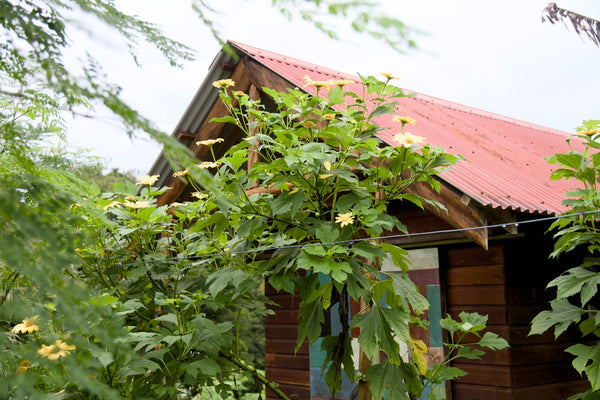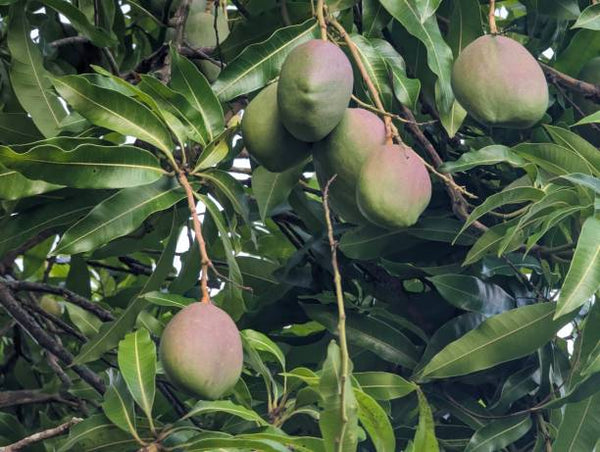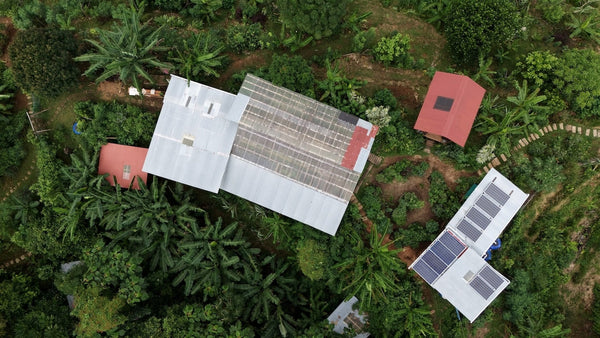Living here in Bocas del Toro, surrounded by the vast and beautiful Caribbean Sea, we've always felt a deep connection to the ocean. It’s a constant presence in our lives, a source of wonder, and, as we discovered, an incredible resource for our family farm. Initially, the idea of using diluted seawater (DSW) in our farm seemed a little unconventional, but we were curious, and honestly, a bit desperate to find a natural way to help our plants thrive in our tropical climate; and, we had an abundance of seawater all around us. This article shares our personal journey and the science behind using seawater for plant nutrition.
The Science: Why the Sea Works Wonders
The Caribbean Sea, like all oceans, is not just saltwater; it's a mineral-rich solution containing over 90 essential minerals and trace elements that plants need for healthy growth. These elements include sodium, chloride, magnesium, sulfur, potassium, calcium, and many more.
What makes seawater so special is that these elements are naturally present in a perfect, balanced ratio. This balance is key, as it allows plants to utilize the nutrients effectively and avoids the problems that can come from using isolated salts like table salt. Unlike table salt, where sodium and chloride are isolated, seawater contains all the minerals in a complete and balanced form.
It’s important to understand the “Law of the Minimum,” which states that plant growth is not determined by the total amount of resources available, but rather by the scarcest resource, or the “limiting factor.” 
Therefore, having access to the full spectrum of minerals in seawater can be a game-changer for plant health and growth by unlocking the absorption of other nutrients already present in the soil.

Our Experience: The Amazing Benefits of DSW
Since we started using DSW, we've seen incredible results in our farm and nursery.
Increased overall plant health. We’ve noticed healthier, faster-growing plants and bigger yields. The plants seem more resilient, with enhanced resistance to pests and disease, and they just look more vibrant.
Our harvests have become more nutritious and flavorful. We noticed how much better and more flavorful our greens, fruits and vegetables have become since we started using seawater. The better taste is not only subjective, we have done Brix tests and saw a significant increase in sugar content (higher brix) after we started using diluted seawater.
Increased pest resistance. We noticed a significant reduction in pests after we started using DSW in the farm.
The soil in our farm has noticeably improved. The sea minerals have enriched it, making it more fertile, with increased organic matter, improved soil structure, and better water retention.
Using seawater in soil-less systems. Using DSW in our aquaponic system has provided our plants with all the essential elements they need. Aquaponic systems always require additional supplementation as the fish waste is not sufficient to properly feed the plants, by using seawater we significantly reduced the amount of additional mineral nutrients needed by the system. Besides directly feeding the plants, diluted seawater also provides essential minerals to the microbiology in the system.
Note: If you will be using seawater for closed loop hydroponics or aquaponics system you should be mindful of nutrient build up and any toxicity associated with it, especially sodium as your plants will use up only a small amount of the sodium present in seawater leaving the rest in the solution to accumulate overtime, sodium can also accumulate on any growing media you’re using such us gravel, clay pebbles, lava rock, coco coir, etc.
We have reduced our reliance on store-bought minerals. By using DSW we are cutting back on our need for traditional mineral fertilizers, such as potassium, calcium, magnesium and most micro nutrients.
How We Use DSW in Our Farm
Using DSW is quite simple, but attention to detail is essential for success.
We collect our seawater right in front of our farm, ensuring we only take it from a few inches below the surface, avoiding any surface debris or pollutants. We have found that brackish water, where fresh water meets the ocean, works well too but it requires less dilution.
We allow the seawater to sit for 24 hours before using it, just to let any sediments settle to the bottom.
The key to success is using the correct dilution. We use a 1:30 dilution ratio of seawater to fresh water as suggested by the University of Hawaii. This ratio is important to avoid stressing our plants. When it comes to seawater, more is not better, adding seawater that is not well diluted will actually harm your plants.

We apply DSW in several ways:
We apply it directly to the soil around the base of our plants, or as a foliar spray on the leaves.
We prefer evenings for application, avoiding the hottest parts of the day.
We always ensure the soil is moist before application and then lightly water again afterward.
We apply DSW about once to twice a month, depending on the needs of the plants, and how they are reacting to the application.
Honoring the Vision of Dr. Maynard Murray
Our work is inspired by the pioneering research of Dr. Maynard Murray, a medical doctor who recognized the incredible potential of the sea for agriculture over a half a century ago.
Dr. Murray spent 45 years of his life studying the ocean and believed that its minerals could revolutionize agriculture, and his book, Sea Energy Agriculture, detailed his findings and inspired us to try this in our farm. This is an excellent book and a must read if this topic interest you.
Besides exploring the topics of agriculture, Maynard Murray’s book also discusses the many health benefits of using seawater for animal and human nutrition.
Conclusion: A Gift from the Sea
Using diluted seawater in our farm and nursery has been a very positive experience. We’ve seen firsthand how it leads to healthier plants, more nutritious harvests, less pests, and a more fertile soil.
As Dr. Murray said, “Nature can teach us so much, if we would only listen”. The Caribbean Sea has proven to be a generous provider for our family farm, offering a truly sustainable path to abundance.
We encourage you to explore this natural approach to gardening. It is a simple practice that can bring great benefits to your garden.
Must read books & references:
Sea Energy Agriculture by Maynard Murray. This book presents Murray’s 45 years of research into sea minerals in farming, food, and medicine. It offers details on his experiments, his views on nutrition and disease, and his sea solids agricultural technology.
Natural Farming: Diluted Seawater by University of Hawaii (College of tropical agriculture) (Link to PDF)
Fertility from the Ocean Deep by Charles Walters. This book examines the work of Dr. Maynard Murray and the successes of growers using his methods, also exploring further developments in sea-solids fertilizer technology.
Composition of seawater by Dr J Floor Anthoni. This document details the chemical makeup of seawater, including its salinity, density, dissolved gases, carbon dioxide, and pH. It provides information on the elements and their quantities in seawater.






0 comments